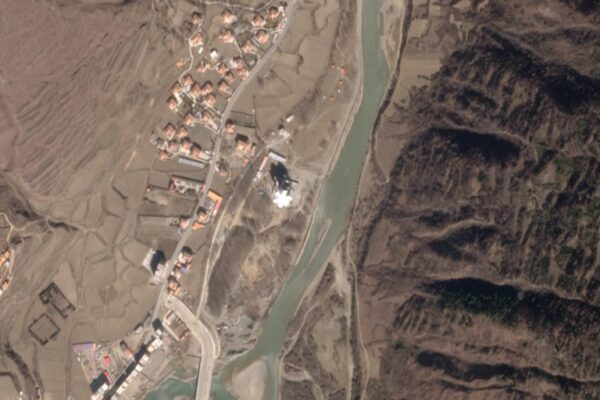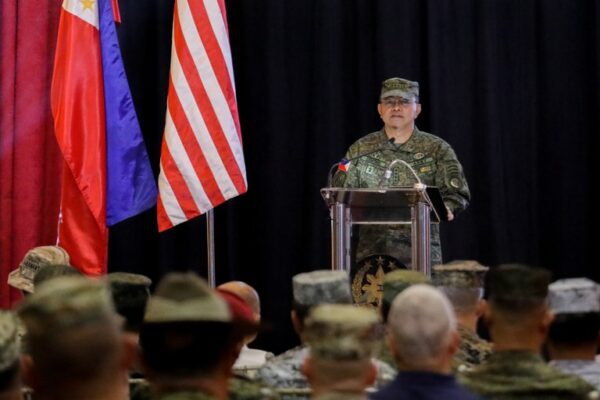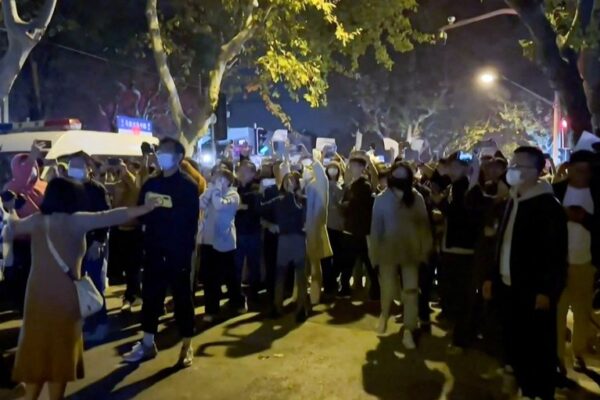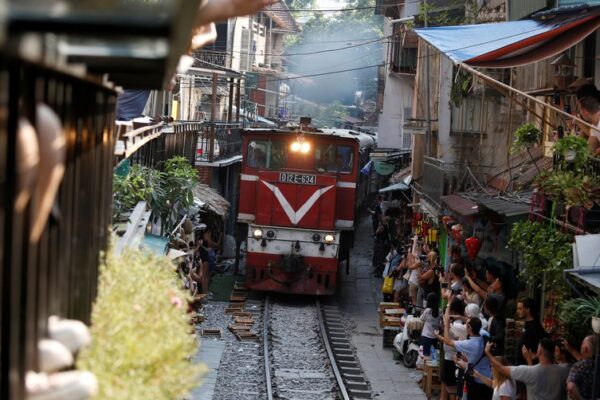
County chief who oversaw destruction of Tibetan Buddhist sites moved to new position
A Chinese official who approved the destruction of a huge Buddha statue in a Tibetan-majority area has been assigned to another position in the same prefecture, Tibetans inside and outside the region said. Wang Dongsheng, former chief of Drago county, now holds an apolitical appointment as director of the Science and Technology Bureau in the Kardze Tibetan Autonomous Prefecture in China’s Sichuan province, they said. Drago county, called Luhuo in Chinese, lies in Kardze in the historical Tibetan province of Kham. A source in India told Radio Free Asia that Wang was promoted to the position in August 2022. Wang had earlier overseen a campaign of destruction at the sprawling Larung Gar Buddhist Academy in Drago in a move that saw thousands of monks and nuns expelled and homes destroyed. After he took office as Drago county chief in October 2021, Wang directed the demolition of the 30-meter (99-foot) Buddha statue there following official complaints that it had been built too high. Dozens of traditional prayer wheels used by Tibetan pilgrims and other Buddhist worshipers were also destroyed. Officials forced monks from Thoesam Gatsel monastery and Tibetans living in Chuwar and other nearby towns to witness the destruction that began in December 2021. Wang had earlier overseen a campaign of destruction at Sichuan’s sprawling Larung Gar Buddhist Academy in a move that saw thousands of monks and nuns expelled and homes destroyed. “[J]ust within a month of taking the office, he initiated the demolition of Tibetan religious sites in Drago,” said a Tibetan source inside the region who requested anonymity for safety reasons. “Under his leadership the Drago Buddhist school was destroyed.” Hotbed of resistance Since 2008, Drago has been a hotbed of resistance against the Chinese government, prompting interventions by authorities, including significant crackdowns in 2009 and 2012. Beijing views any sign of Tibetan disobedience as an act of separatism, threatening China’s national security. In this satellite image slider, the 99-foot Buddha statue in Drago in the Tibetan Autonomous Prefecture is shown at left sheltered by a white canopy on Nov. 19, 2019. At right is the site on Jan. 1, 2022. Credit: Planet Labs with analysis by RFA Earlier this year, Chinese authorities tightened restrictions on Tibetan residents there, imposing measures to prevent contact with people outside the area, according to sources with knowledge of the situation. Wang’s term as chief of Drago county ushered in a period of heightened assault on Tibetan Buddhism at the hands of the Chinese Communist Party, with the brutal dismantling of important cultural and religious sites. Party leaders who suppress Tibetans and successfully carry out harsh campaigns against the Buddhist minority group are often promoted, said Dawa Tsering, director of the India-based Tibet Policy Institute. “This is the norm, and we can see that happen with Wang Donsheng,” he told RFA. Lui Pang, an executive member of Drago Communist Party, has been appointed as the new county chief, the sources said. Among Drago county’s dozen administrative officials are eight of Chinese origin who hold higher positions, while the remaining four are Tibetans who work as office employees, they said. So far, there’s been a slight easing of the harsh campaigns against Tibetans in the region under the new county chief, said another Tibetan inside the region, who declined to be identified for safety reasons. “Unlike under former chief Wang, if one does not get involved in any political and sensitive issues and incidents, they [authorities] will not make random arrests as such,” the source said. Previously, Wang was appointed deputy secretary of Tibetan-majority Serta county in Kardze, called Ganzi in Chinese, in December 2016, and later served as its county chief. Translated by Tenzin Dickyi for RFA Tibetan. Edited by Roseanne Gerin and Malcolm Foster.







